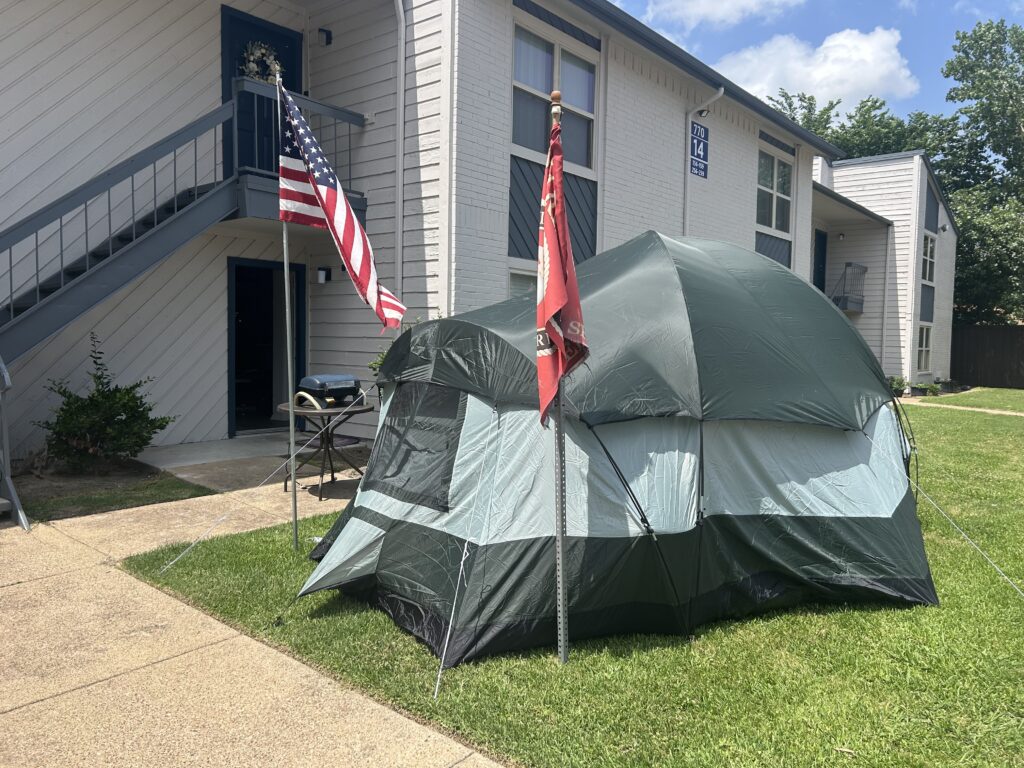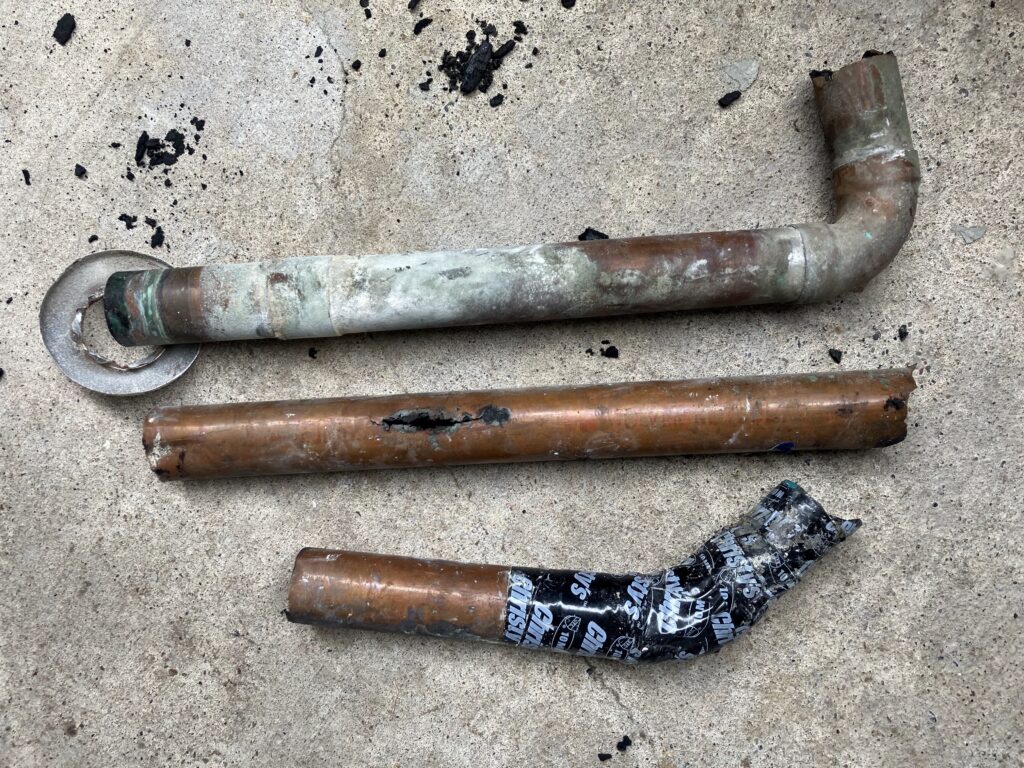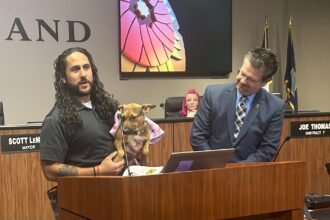Garland, TX – In a striking display of resilience, Lawrence Darensburg, a marine veteran, is camping outside his apartment while his wife, Erma, struggles to afford a hotel room. The couple faces serious health issues related to their living conditions, prompting Lawrence to take a stand after they say the property manager declared their unit unlivable.

Despite ongoing health complications for Erma, who now suffers from breathing issues, the couple continues to pay their rent on time. Lawrence is determined to advocate for his wife and seek a resolution with the apartment’s new owners, Rise48 Communities, based in Arizona. The Darensburgs say that the property manager had been understanding of their situation, but that Rise48 Communities informed them that they do not have a gauge for determining whether a unit is unlivable or not.
With roughly just a month left on their lease, the couple is caught between the high costs of temporary housing on a fixed income and the uncertainty of their living situation. Their insurance provider has informed them that the property owner must deem the unit unsafe for coverage to apply, raising concerns about fairness in a system that prioritizes management’s interests. If the property owner took action to declare the unit unsafe, then they say their insurance will help to cover the expenses related to alternative housing as well as the replacement cost of some of their items which were damaged after their unit was flooded by a pipe.
The copper pipe that caused the damage is a common plumbing issue resulting from a slow corrosion process that can eventually lead to flooding. Copper pipes can leak due to several factors, including corrosion, water chemistry, and physical stress. Corrosion, often caused by hard or acidic water and chlorine, can create pinholes or pits in the pipe walls.
Mold thrives in dark, damp areas caused by leaks, especially when moisture lingers for an extended period. A small, slow leak, like a pinhole leak, can go unnoticed for weeks, months, or even years. These hidden leaks may be concealed in walls or under flooring, allowing water to accumulate and cause damage before it becomes visible.

In the case of the Darensburgs, the earthy smell of mold is noticeable as soon as you step inside their apartment. There is visible evidence of long-term moisture issues throughout their unit that have yet to be addressed by the property owner, including buckling in the laminate flooring and patches of pink mold, even in the kitchen.
During the maintenance work to replace the broken pipe and drywall in the damaged area, large drying fans were placed to dry out the moisture before sealing the wall back up, but the apartment did not properly seal that area off which resulted in the Darensburg’s clothes and furniture being exposed to mold spores. “The air conditioner was running, and all that mold and moisture smell is on everything,” Lawrence explained.
Erma describes the apartment’s condition, stating, “It smells damp and musty, and it’s aggravated my lungs.” Despite notifying property management, the response has been inadequate, with the company based in Arizona claiming there is “no gauge” to determine the apartment’s safety. Although the Darensburgs say the on-site property manager believed their unit to be unlivable, they were not authorized to make that determination without their supervisor, who declined to permit the designation.
Tenants facing mold issues have specific rights under Texas law. They cannot simply remove the mold themselves and reduce their rent, as the repair and deduct method is not automatic and should only be undertaken with legal advice. If a landlord refuses to remove mold, tenants must either obtain a court order or follow the repair and deduct rules outlined in Texas Property Code 92.0561. This includes limits on rent deductions based on the cost of repairs.
According to the City of Garland’s 2023 Multifamily Scorecard, the Rise Gateway apartments have accumulated a total of 50 violations, including 7 life safety violations, 5 critical violations, and 38 non-critical violations. Life safety violations, which require immediate attention, include issues such as exposed wiring, potential structural collapses, and non-functional smoke detectors, all of which pose significant risks to residents. Critical violations, which must be addressed within 72 hours, include problems like sewage leaks, lack of hot water, and vermin infestations. Additionally, the numerous non-critical violations reflect ongoing maintenance issues, such as disrepair of roofing and floors, indicating a concerning overall condition of the property. This alarming report highlights the urgent need for improved living conditions and compliance with safety standards at Rise Gateway.
Tenants are advised to have a local housing or health official provide written notice if mold conditions materially affect health or safety. If health has been harmed due to hazardous mold exposure, it’s crucial to consult an experienced personal injury lawyer, as landlords may be held responsible for health issues linked to hazardous conditions. For more information on mold and toxins, visit the CDC’s site on Indoor Air Pollutants and Toxic Materials.
As Lawrence camps outside, he hopes to rally community support to address their plight. They argue that had they been homeowners, their insurance would have covered the cost of temporary housing. Instead, they are left to navigate a system that seems to prioritize property management over tenant safety.
Attempts to contact Rise48 Communities and the property manager at Gateway for comment went unanswered. To help the Darensburgs, please contact editor@garlandgazette.com





